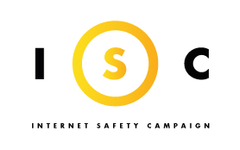Cybercrime.org.za
Threat, harm or extortion via the Internet
With the increasing prevalence and power of computers, terrorism has gone beyond physical attacks to include computer-based, or “cyber” terrorism. Through well-planned computer attacks, cyberterrorists may target key services that are computer-controlled, such as water and electricity.
One U.S. definition describes cyberterrorism as “the use of computing resources against persons or property to intimidate or coerce a government, the civilian population, or any segment thereof, in furtherance of political or social objectives” (Cybercrimes: Infrastructure Threats from Cyberterrorists, Cyberspace Lawyer, 4 NO. 2 Cyberspace Law. 23).
Many government Web sites are likely targets for a cyberterrorism attack because an attacker could use the Web site to access confidential information on national security and individual citizens.
Cyberterrorists also attack personal or corporate Web sites and demand ransom in return for stopping the attack and any resulting damage. For example, a user who gains administrative access to a Web site through social engineering or other means could later threaten the owner of the Web site with publishing the owner’s account information on the Internet if the owner does not pay the ransom.
View the list of Local Resources that can assist Internet users in South Africa.
